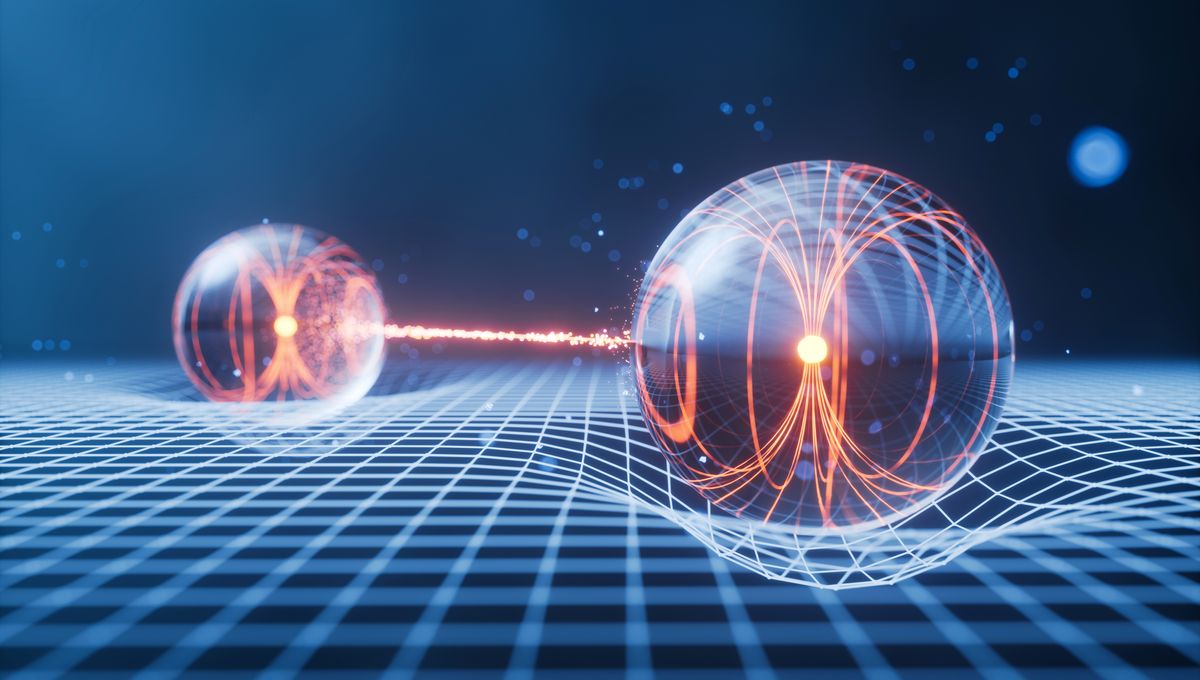
The strange features of quantum substances are being explored in the hope they will lead to engines more powerful and efficient than their classical counterparts. There’s still a lot we don’t understand about how the various aspects of quantum physics can help and hinder machines. A new exploration of one of quantum physics’ most distinctive features, entanglement, shows it can help boost the useful energy produced by an engine, but not the energy conversion efficiency.
Like many aspects of quantum mechanics, entanglement makes little sense to humans raised in a classical world. Einstein famously mocked it as “spooky action at a distance” – yet, eventually, the evidence for its existence became too powerful to be ignored. In the last two decades, physicists have had increasing success at entangling larger numbers of subatomic particles over increasing distances.
Most plans for harnessing quantum entanglement for practical purposes have involved information processing and transmission, but quantum engines and quantum batteries could have a place as well.
Last year, the first quantum engine was demonstrated, using the transformation from a fermion gas to a boson condensate and back again, instead of the differences in heat used by engines since Watt’s invention. Fermions and bosons are particles distinguished by their spins. More relevantly here, bosons can clump together much more than fermions, because the Pauli exclusion principle, which prevents two fermions occupying the same quantum state at once, doesn’t apply to them. The back and forth between an expansive fermion gas and a condensed Bose-Einstein condensate of bosons was used to drive tiny pistons.
That initial engine had an efficiency of 25 percent – a staggering achievement for a first go, but far less than the engines that drive our current world. So the race is on to make something better. Several papers have proposed using quantum entanglement, where each particle’s quantum state is inextricably linked to that of the others.
Dr Zhou Fei was part of a team that created a quantum engine based on two calcium ions in a trap, where the extent of quantum entanglement could be varied to measure its effects. The engine works on a four-stroke cycle, starting with the absorption of photons from a red laser, an expansion phase, a side-band transition to couple the system to a quantum load and finally compression.
“Our study’s highlight is the first experimental realisation of a quantum engine with entangled characteristics. [It] quantitatively verified that entanglement can serve as a type of ‘fuel’,” Fei told the South China Morning Post.
“We chose the entangled states of two spinning ions as the working substance, with [their] vibrational modes acting as the load. Through precise adjustments of laser frequency, amplitude, and duration, the ions were transitioned from their initial pure states to highly entangled states,” Zhou added.
The conversion efficiency, measured by the number of vibrations the engine created for each photon applied, did not improve with entanglement. However, the mechanical efficiency was higher with entanglement, meaning more useful energy was produced for the same input.
Even with increased energy, quantum engines will still have quite restricted applications. So far they only operate at temperatures close to absolute zero, for example. However, with quantum computers already needing these temperatures to work, quantum engines may fill roles associated with them, although they will need to expand significantly from this proof-of-concept.
The work is published in the journal Physical Review Letters.
Source Link: New Quantum Engine Fueled By Ions' Entanglement